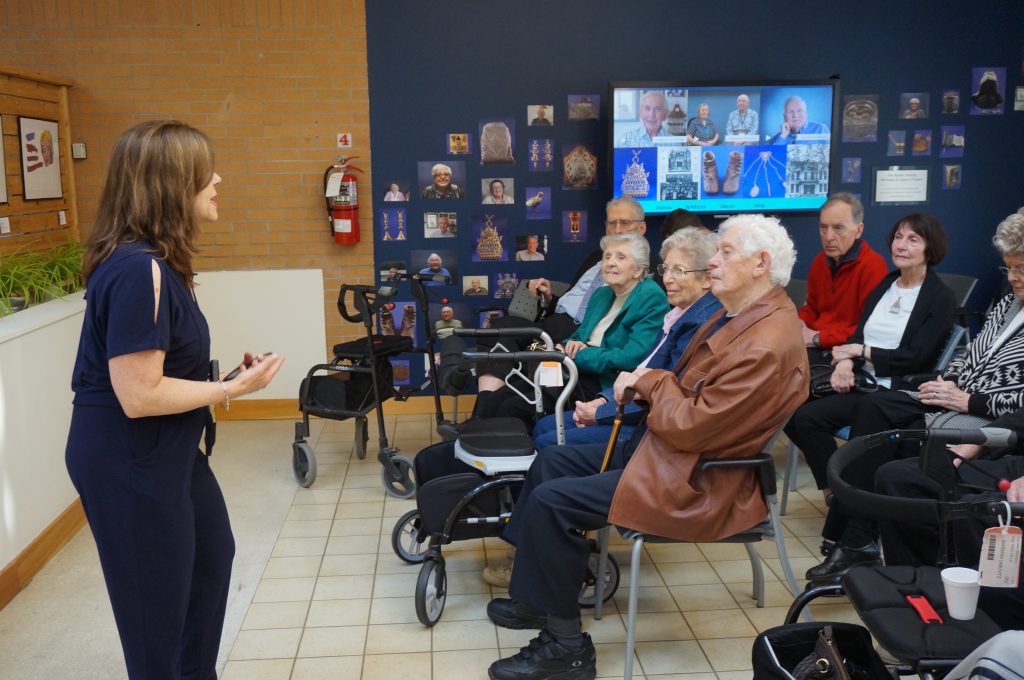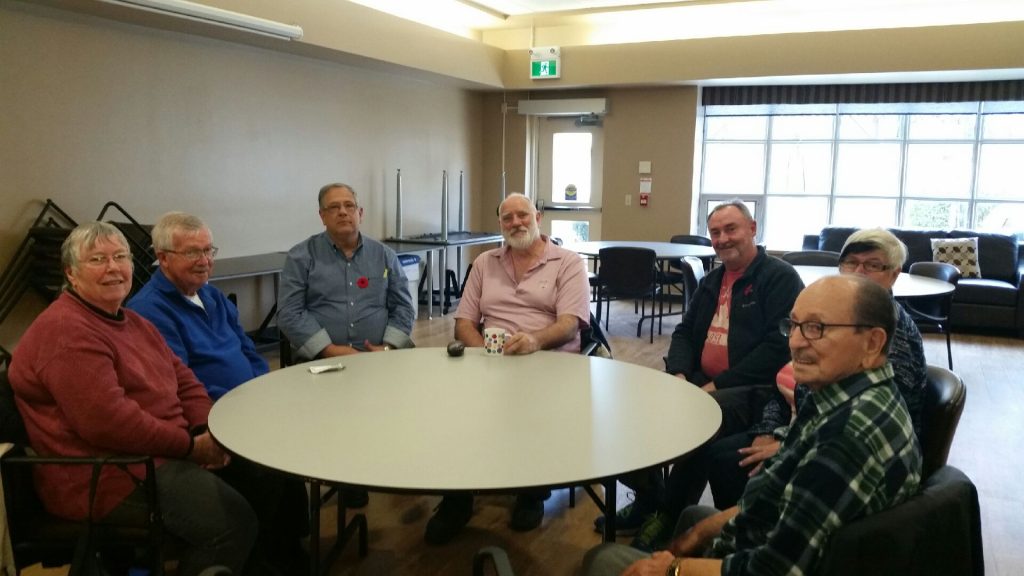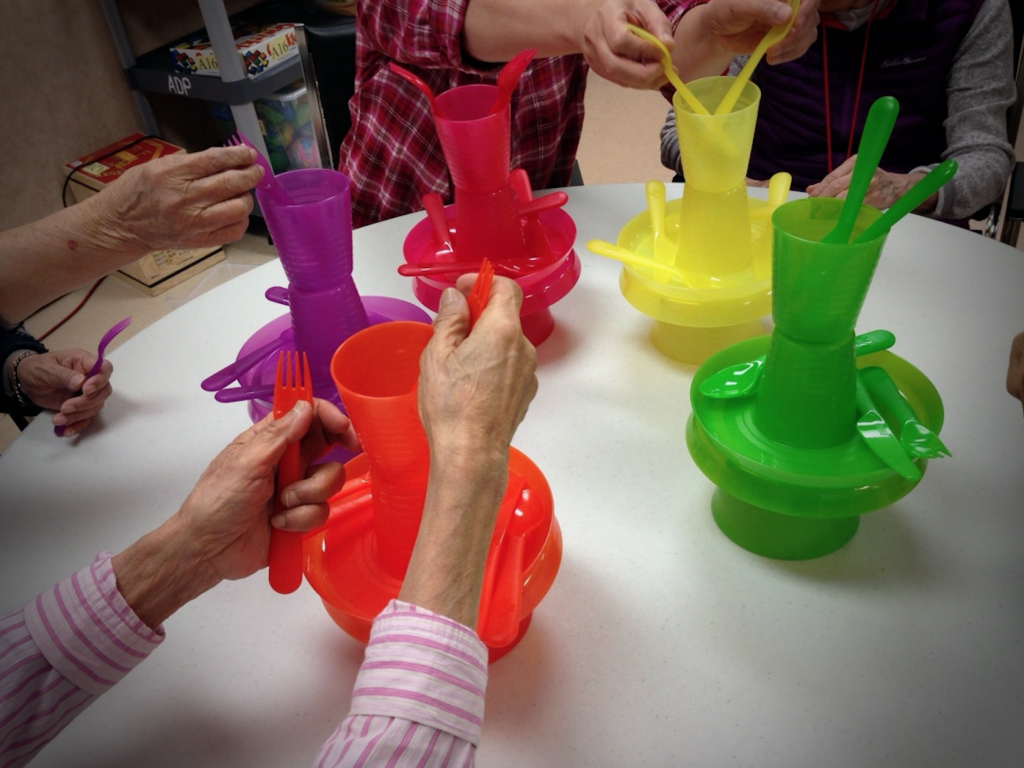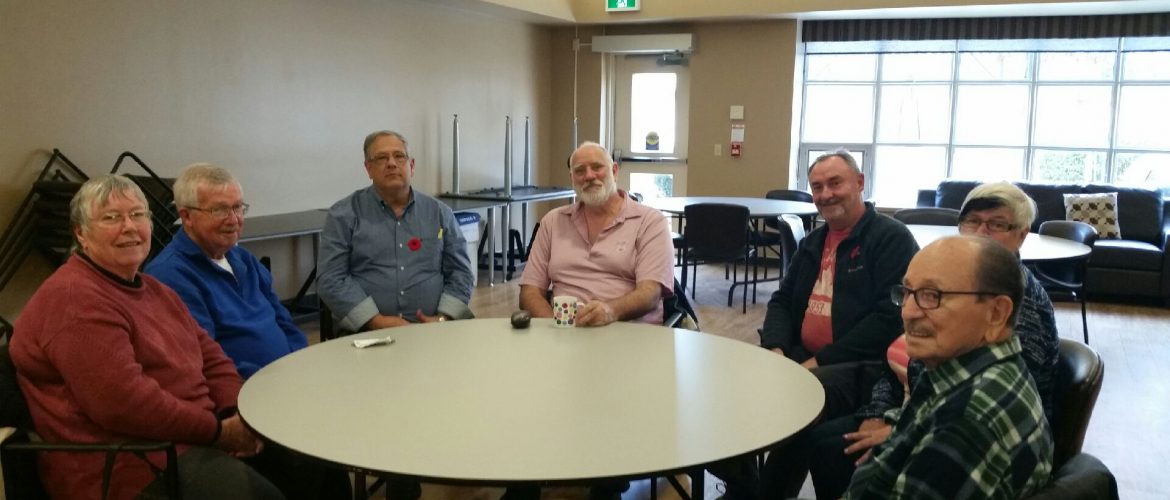In honour of Alzheimer’s Awareness Month, CABHI is featuring a blog each week with themes ranging from promoting healthy living to keeping the brain active. This week’s post focuses on supporting caregivers.
Caregivers see the effects of Alzheimer’s Disease (AD) on a daily basis. Whether they’re living with a family member who’s experiencing dementia or mainly coordinating care, there’s no denying the amount of time and effort that goes into caregiving.
A 2012 Statistics Canada report found 6 per cent of caregivers provide support due specifically to AD and other forms of dementia. More than half of the caregivers polled felt either worried or anxious. Similarly, about half of respondents reported fatigue over the last year.
The Baycrst-led Centre for Aging + Brain Health Innovation (CABHI) supports a number of projects geared specifically towards caregivers. Below is a brief look at a trio of those unique projects:
Road to Connection

Social worker Renee Climans addresses those in attendance at the Road to Connection exhibit
Road to Connection isn’t your typical dementia support group. For starters, it caters to both caregivers and their spouses experiencing dementia. Running for 10 weeks, the CABHI-supported program features a specialized art class for seniors dealing with dementia and a support group for their spouses. “Coming here and listening to the group, they shared their experiences and made me feel like I was not alone,” says Diane, a participant.
The two groups run simultaneously for about an hour. After that, they converge so the couples have a chance to collaborate and see the art their spouses have created.The unique program is the brainchild of social workers and artists at Baycrest, including Arlene Consky, Renee Climans and Melissa Tafler. “What we looked at doing was to bring three proven, existing models together: the caregiver support model; the idea of arts-based programming for people with dementia; and then tying that with a proven memory intervention,” shares Renee.
To learn more about Road to Connection, read the full story here.
Rural Support

Social worker Paul Yost (pictured wearing a poppy) and Peter White (pictured to his left) at a Rural Support meeting.
“Rural Support for Care Partners for People Living with Dementia” started after social worker Paul Yost realized care partners in rural Ontario were seeking support, but simply couldn’t access it.
“In a rural area they don’t have the resources – amongst them is transportation,” says Paul, who works out of the Alzheimer Society London and Middlesex. He adds: “In London, say someone isn’t driving anymore, they can still attend our programs by various transit methods. In a rural area they just do not have that.”
The program runs once a month in Newbury, Ont. (population under 500), and caters to caregivers of people with dementia living in the four counties area.
A caregiver who attends the group shares his story in the full article.
Play Intervention for Dementia

Seniors engaging in PID
Who says playing is just for children? Adults can benefit from a dose of creativity and fun as well. That’s the philosophy behind Play Intervention for Dementia (PID), a strategy developed by University of Toronto professor Ka Tat Tsang in collaboration with the Yee Hong Centre for Geriatric Care in Toronto to engage seniors living with cognitive decline. With support from the CABHI, Yee Hong is expanding the intervention’s reach and delivering training sessions to those that see the effects of dementia everyday: caregivers.
Read the full story to learn more about PID through a caregiver.


